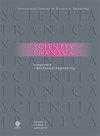A new application of multi-criteria decision-making methods for the scheduling of flexible manufacturing systems: A case study
IF 1.9
4区 工程技术
Q2 ENGINEERING, MULTIDISCIPLINARY
引用次数: 0
Abstract
. With the growing use of flexible manufacturing systems (FMSs), it became more important to optimize them. Scheduling is one of the critical problems in FMS optimization. This study presents a new application of multi-criterion decision-making (MCDM) methods for scheduling problems of automated guided vehicles (AGVs). Designation of AGVs to job shops is the major concern of this study. The research methodology consists of two steps. We first identify the criteria for finding the importance of jobs and then apply several MCDM methods (i.e., TOPSIS, VIKOR, and PROMRTHEE) to assign AGVs to the jobs. At last, we highlight the scheduling plan for AGVs using the mathematical formulation. This paper can bring some managerial insights not only for those who use an FMS but also for anyone who is working in the field of smart management. By the scrutiny, we highlight that the travel distance is significantly correlated with utilities. In other words, the more important are the jobs, the less distance is between jobs and AGVs. The findings support the minimization premise of the travel by AGVs and utility maximization of sending AGVs to the jobs simultaneously. This is achieved through assignment of two AGVs to seven jobs for multiple periods.多准则决策方法在柔性制造系统调度中的新应用:一个案例研究
。随着柔性制造系统(FMSs)应用的日益广泛,对其进行优化变得越来越重要。调度是FMS优化中的关键问题之一。提出了多准则决策(MCDM)方法在自动导引车调度问题中的新应用。为作业车间指定agv是本研究的主要关注点。研究方法分为两个步骤。我们首先确定查找作业重要性的标准,然后应用几种MCDM方法(即TOPSIS, VIKOR和PROMRTHEE)将agv分配给作业。最后,利用数学公式给出了agv的调度方案。本文不仅可以为使用FMS的人,也可以为任何从事智能管理领域工作的人带来一些管理见解。通过仔细研究,我们强调出行距离与公用事业显著相关。换句话说,作业越重要,作业与agv之间的距离就越小。研究结果支持agv出行的最小化前提和agv同时送达作业的效用最大化。这是通过在多个时间段内将两辆agv分配给七个作业来实现的。
本文章由计算机程序翻译,如有差异,请以英文原文为准。
求助全文
约1分钟内获得全文
求助全文
来源期刊

Scientia Iranica
工程技术-工程:综合
CiteScore
2.90
自引率
7.10%
发文量
59
审稿时长
2 months
期刊介绍:
The objectives of Scientia Iranica are two-fold. The first is to provide a forum for the presentation of original works by scientists and engineers from around the world. The second is to open an effective channel to enhance the level of communication between scientists and engineers and the exchange of state-of-the-art research and ideas.
The scope of the journal is broad and multidisciplinary in technical sciences and engineering. It encompasses theoretical and experimental research. Specific areas include but not limited to chemistry, chemical engineering, civil engineering, control and computer engineering, electrical engineering, material, manufacturing and industrial management, mathematics, mechanical engineering, nuclear engineering, petroleum engineering, physics, nanotechnology.
 求助内容:
求助内容: 应助结果提醒方式:
应助结果提醒方式:


